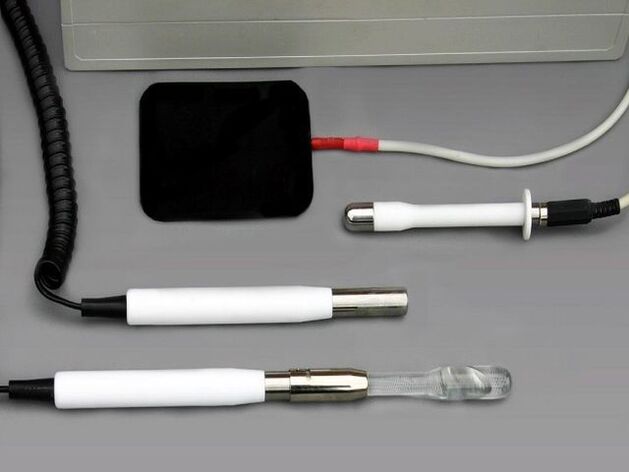
Physiotherapy enhances the effectiveness of medications, consolidates the results of treatment, and promotes restoration of tissue and cellular immunity of the prostate.In medical institutions, procedures are carried out using professional devices with various operating modes..At home, the device for the treatment of prostatitis can only be used with permission and under the periodic supervision of a doctor.
Types of devices and principles of their operation
Types of physiotherapeutic devices used to treat prostatitis:
- Electromyostimulating (cause muscle contraction);
- Electromagnetic;
- Vibration stimulating (massage);
- Ultrasonic;
- Laser.
The most functional and effective devices are those with a combined type of action.
Contraindicationsto hardware physiotherapy for prostatitis:
- Individual intolerance. The patient may experience groin pain, rashes and skin irritation.
- Malignant tumors.
- Active tuberculosis.
- Blood clotting disorders.
- Stones in the prostate (calculous prostatitis).
- The presence of foci of suppuration (purulent focal prostatitis).
In acute prostatitis, heating the gland is unacceptable, so devices that apply heat are not used.
Electrical stimulation devices
Electrical stimulation of muscles is performed by influencing the motor nerves with pulsed currents passing between the electrodes. The impulses are similar to those that the body itself generates to irritate nerve fibers.Therapeutic effect for prostatitis:
- Local blood circulation and metabolic processes are activated;
- The outflow of lymph improves, venous stagnation is eliminated;
- Regeneration of damaged tissues is stimulated;
- The sensitivity of nerve endings is regulated;
- Prostate swelling subsides;
- The muscular frame of the pelvic floor is strengthened;
- In prostate tissue, the processes of atrophy and sclerosis, provoked by chronic inflammation, are inhibited;
- Benign neoplasms with a diameter of up to 0. 5 cm are broken down.
When carrying out the procedure, two points are important: the correct position of the electrodes and the current strength.
Various types of electrical stimulation of the prostate
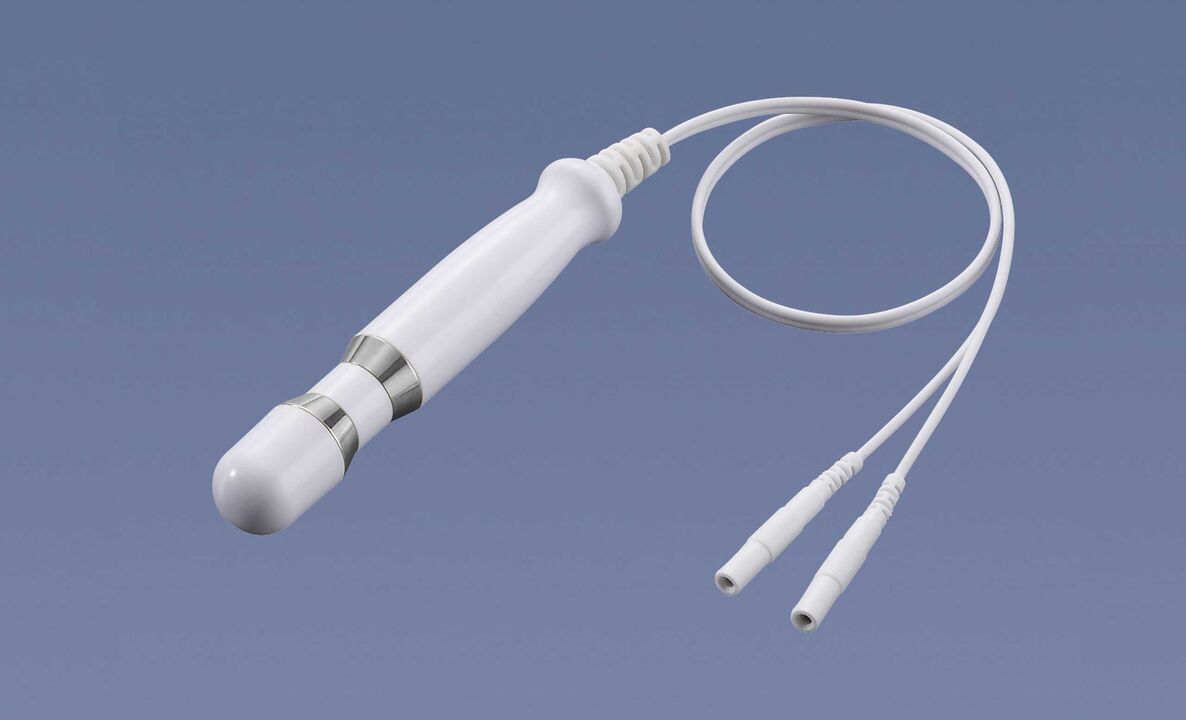
Prostate stimulation is performed in three ways(depending on the attachments included with the device):
- Through the urethra. One catheter electrode (cavitary electrode) is inserted into the urethra, the other (a copper plate with a hydrophilic coating-lining) is placed on the coccyx.
- Transrectal. A thin electrode attachment is inserted into the rectum, and a second electrode is placed on the pubis. This method is the most effective and comfortable.
- Through the skin of the perineum. Electrodes are placed in the area between the anus and scrotum.
The procedure is performed in a lying position on your side or back with your legs pulled up. The sensations during electrical stimulation are unpleasant, but tolerable. The current strength is selected individually on the device. The duration of the procedure is from 7 to 17 minutes. Usually 10-15 sessions are prescribed.
As for effectiveness, in 86% of patients after the course, pain in the prostate is significantly reduced, urination is normalized, and erection improves. The procedures are indispensable for the treatment of chronic prostatitis caused by stagnant processes and accompanied by weakening of the muscles of the gland.
Magnetic field generators
Magnetotherapy is the effect on tissue of a constant or alternating magnetic field (continuous or pulsed radiation), which is generated by a special device. In our country, this technique is officially recognized, but in the USA and a number of other countries it is not.
The proposed mechanism of the influence of the magnetic field: electric currents arise in tissues, which change the orientation of molecules of biological fluids and the rate of biochemical reactions.Effect on the prostate:
- Reducing swelling and pain;
- Improved blood circulation;
- Acceleration of healing of inflammatory damage.
The duration of exposure depends on the power of the device and the condition of the patient. There are no unpleasant sensations during the procedure.
Vibration stimulators
Vibration stimulation of the prostate is one of the types of massage effects with the aim of activating blood flow and stimulating the emptying of secretions from the ducts. There are many types of devices, the essence of which is the same:a nozzle is inserted into the anus, which begins to vibrate when you press a button. Vibration stimulation is a good way to support prostate healthin the absence of regular sex.
The procedure lasts on average 5 minutes.The feeling is rather pleasant, some men reach orgasm. After the procedure, prostatic juice may be released from the urethra (if it stagnates, it comes out in the form of jelly-like clots). Contraindications are acute inflammation of the prostate, the presence of any neoplasms in its body.
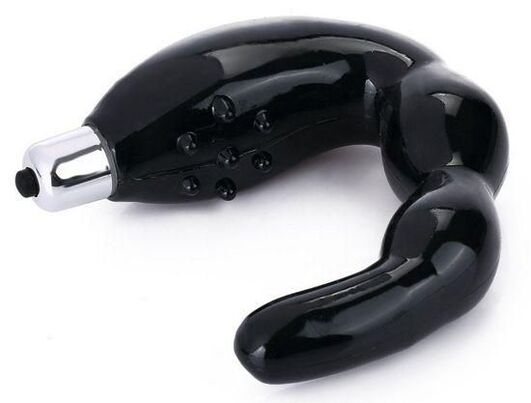
Ultrasonic devices
Physiotherapeutic devices generate ultrasonic waves with a frequency of 800 to 3000 kHz, causing particle vibrations (cell micromassage). The impact is carried out in constant or pulsed modes.The effect of ultrasound on prostate tissue:
- Improving the condition of cell walls, increasing vascular permeability (therefore, in case of acute inflammation of the prostate with the formation of pockets of infected fluid, the procedure is not performed).
- Stimulation of biochemical processes (fermentation, oxidation) and tissue respiration.
- An increase in the number of nucleic acids that perform a large number of essential functions for the life support of cells.
- Relieving spasms, facilitating urination.
- Preventing the formation of scars in the body of the prostate (ultrasound breaks down collagen into individual fibers).
- Blocking pain impulses.
- Increased activity of cellular defense mechanisms.
For prostatitisultrasound is used as a transport agent for medicinal substances(hydrocortisone, antibiotics)to prostate tissue– rectal and urethral phonophoresis. To carry out the procedure, the patient must take a knee-elbow position. You must first rinse the rectum with a rubber bulb. The rectal emitter is inserted to a depth of 8-10 cm. Medicines in the form of an emulsion are delivered directly through it. With urethral phonophoresis, the therapeutic solution is fed into a radiator inserted into the urethra. The emitting nozzle is pre-lubricated with a contact substance. The procedure takes 15-20 minutes. For prostatitis, 6 to 8 sessions are performed every other day.
Ultrasound exposure is recommended for scar tissue changes, parenchymal prostatitis (with purulent discharge). Optimal results are achieved when exposed to waves with a power of 0. 3-0. 4 W/cm2in pulse mode. An increase in power can lead to urinary disorders and exacerbation of chronic prostatitis.
Laser devices
A laser is a device for generating a concentrated stream of light particles. Photons of light penetrate through the skin into the prostate tissue and are distributed along the bloodstream. In essence, the effect is similar to treatment with a blue lamp, but infrared radiation has greater penetrating power and does not have a warming effect.Under the influence of the beam, blood circulation in the prostate tissue is activated, pain and swelling subsides.
Irradiation is carried out using a contact or non-contact method. Types of emitters: rectal, transdermal and acupuncture (points on the chest, forehead, lower back, sacrum are illuminated). The intrarectal procedure lasts up to two minutes. The course will require about 10 irradiations.In most patients, pain in the prostate disappears after the second session..
Popular appliances for home use
Home portable devices for the treatment of prostatitis are usually less functional than professional ones, but they are quite suitable as maintenance therapy and for prevention. You can purchase them in pharmacies or on manufacturers' websites.
It should be noted that the use of household appliances implies their regular hygienic maintenance. Rectal sensors must be washed with soap and disinfected with chlorhexidine solution. It is advisable to put a condom on them before use.
Device with electrodes
It consists of a control unit with two attached electrodes: a physiotherapeutic one, which is inserted into the rectum, and a passive one, fixed in the lower abdomen.
It affects the prostate in three directions:
- Stimulation with pulsed currents to improve blood circulation.
- Massage with low-frequency mechanical vibration to activate venous outflow, dilate arteries and enhance nutrition of the gland.
- Irradiation with a magnetic field to relieve swelling and inflammation.
All modes of this device can be used separately.
Darsonval
Darsonval is a class of devices that generate currents of low strength and high frequency. Externally similar to electric toothbrushes.
Special electrode attachments are provided for treating various areas. For prostatitis, a large or small rectal one is used, which can be purchased separately and are inexpensive.
Magnetotherapeutic device
The device consists of a power supply unit to which a strip of four magnetic emitters (inductor coils) is attached. There is no rectal probe.
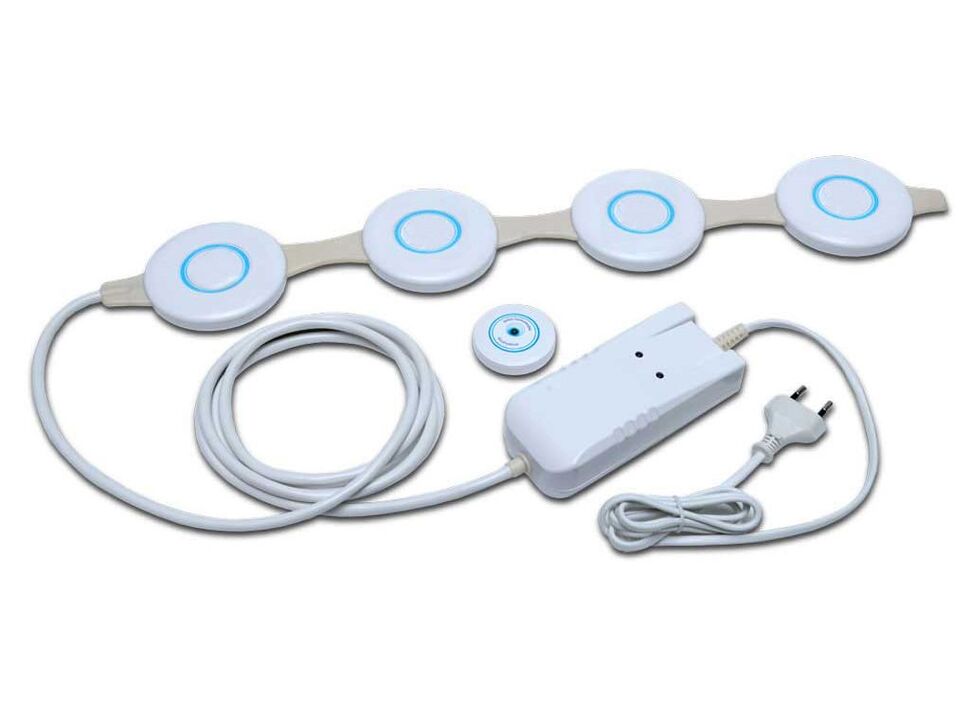
The running magnetic field penetrates to a depth of 8 cm, so to influence the prostate, the coils can be placed both on the abdomen and in the perineum (from the scrotum to the anus).
Thermal, vibration device
Provides thermal, vibration and magnetic (pulse field) effects on the prostate. Consists of a wave generator and a rectal probe. The unit has only one button ("start") and two indicator lights.
Electromagnetic device
Urological device for electromagnetic influence. Consists of a lightweight control unit with an anatomically shaped rectal probe. Has a combined effect on the prostate:
- Thermal;
- Irradiation with magnetic waves;
- Vibration (massage).
Vacuum device
The device operates with vacuum and traveling magnetic waves. It consists of a control unit and a vacuum chamber into which the penis is placed. The procedures effectively activate blood flow in the penis and prostate.
The device operates in cycles of two minutes, during which the pressure inside the flask alternately increases and decreases. It has anti-edematous, anti-inflammatory and analgesic effects.
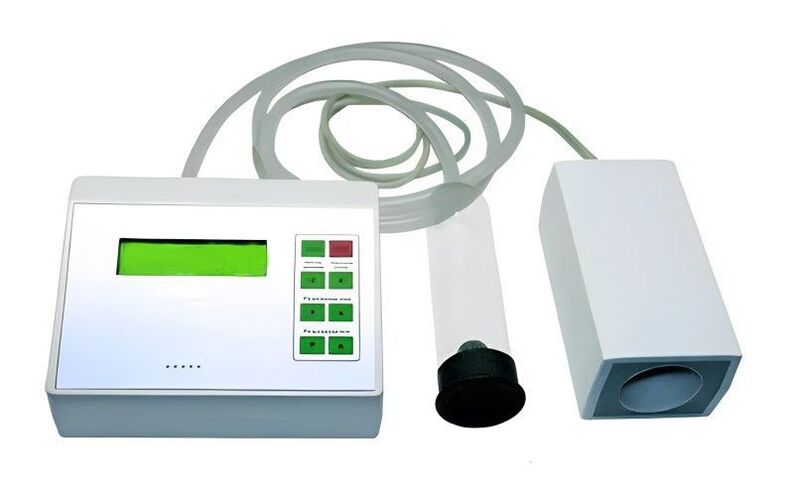
Vibro-acoustic device
Vibro-acoustic portable device, consisting of a control unit and two emitters. According to information from the manufacturer, under the influence of waves, vibrations of the capillary walls increase, which helps to activate lymph and blood circulation.
For physiotherapy rooms
On an outpatient basis, physiotherapeutic effects on the prostate are carried out using professional multifunctional devices. They cost several orders of magnitude more than homemade ones, but the results are noticeable after just a few procedures.
High frequency electromagnetic device
A device for physiotherapy using a high-frequency electromagnetic field (microwave decimeter waves). There are all necessary registration documents, conclusions and certificates. The package includes several emitters, including a rectal one.
Laser physiotherapeutic complex
Laser physiotherapeutic complex - a device for vibration-laser-magnetic therapy (VLMT),intended for professional use in medical institutions. Equipment:
- Base unit (three-channel).
- Vibromagnetic laser head.
- Three laser heads.
- Set of nozzles.
- Book about laser therapy in urology.
- A device for vacuum massage with a flask and a laser emitting head (for the treatment of erectile dysfunction using LOD therapy).
Electrolaser device
Electrolaser devicehas a three-way effect on the prostate:
- Irradiation with four-wave laser radiation (red, infrared types IR-1, IR-2).
- Stimulation with electrical bipolar impulses (medicinal electrophoresis, transcutaneous electrical neurostimulation).
- Magnetic wave radiation (the kit includes a mirror attachment for percutaneous treatment of the prostate).
Equipped with transrectal and urethral probes. The impact parameters are selected individually, the waves are synchronized with the patient’s pulse. The device is controlled from a PC or remote control.
Vacuum phototherapy device
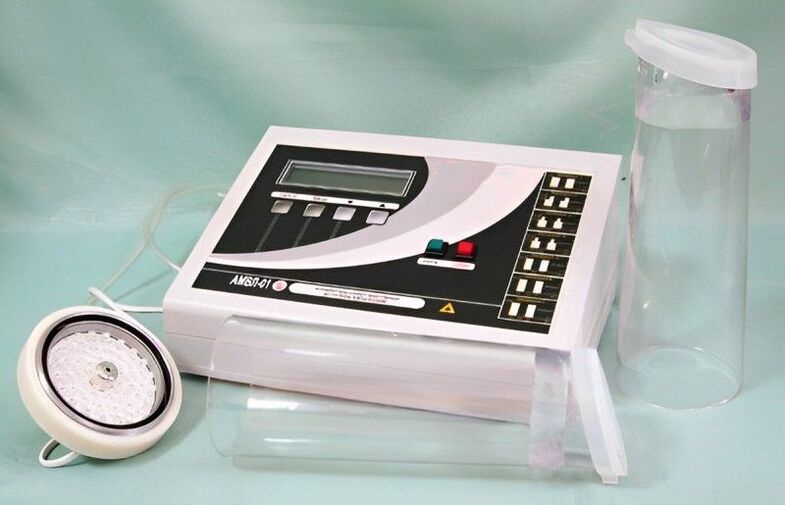
The device is a vacuum phototherapeutic penis massager.Designed to improve trophism (blood flow rate and metabolic processes) in the penis and prostate. It belongs to the professional class, but can also be used at home. It works in two ways:
- Local decompression (dilation of the vessels of the penis due to the vacuum created in the flask);
- Irradiation with LED matrix (phototherapy, quasi-monochromatic radiation).
The device is compatible with a PC, has 15 built-in programs, but you can simulate individual ones.
Hardware and software complex
Professional hardware and software complex, with the help of whichit is possible to influence the body with electrical, laser, magnetic and color pulse radiation. For irradiation of the prostate, a rectal magnetic laser intracavitary emitter with an electrical stimulation function and a plate electrode placed on the lower abdomen are provided.
The device is mass-produced, used by medical institutions, and occupies a leading position in the ratings of physiotherapeutic medical devices.
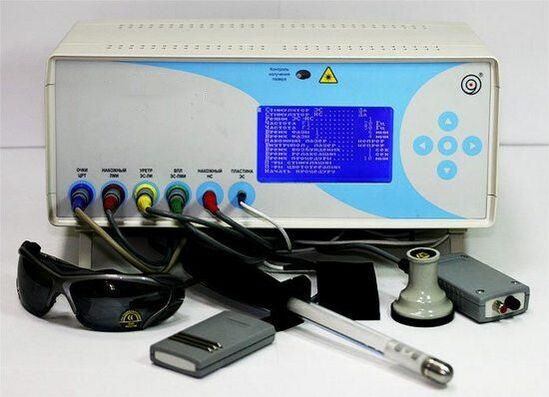
Light therapy lamp
A lamp is a device for conducting light therapy sessions. The device is available in various modifications.Polarized polychromatic light has a gentle effect on prostate tissue, stimulating their regeneration by activating biological processes (light affects intracellular molecules). The procedures relieve pain and reduce inflammation.
Progress of the procedure: the light of the lamp is directed to the area of the lower abdomen, previously cleaned with a special liquid, then to the perineum. Exposure time is 5 minutes. There may be several heating points. For sustainable relief of prostatitis symptoms, 10 sessions are enough.
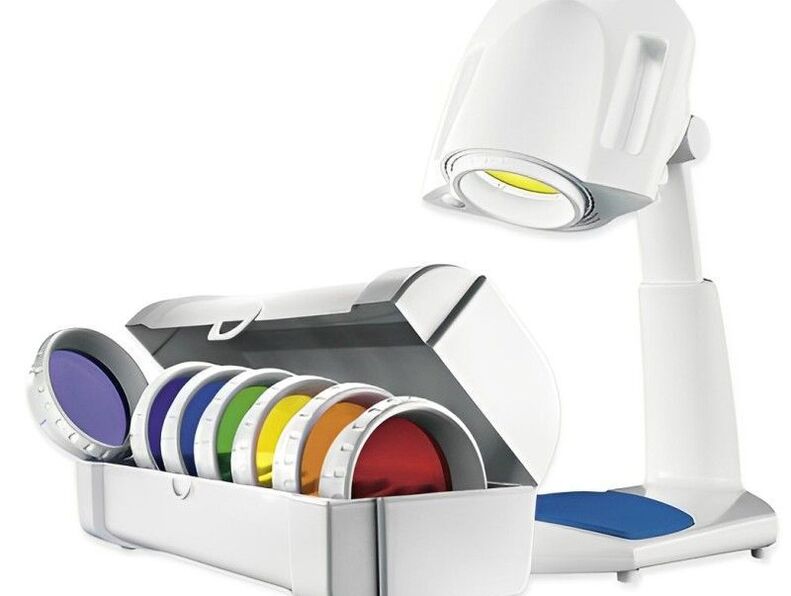
Questionable devices
In various sources there are advertisements for devices that do not have certificates, and information about the manufacturer is very difficult to find. Numerous dealers pretend to be the manufacturer, and prices vary significantly. In particular, some of them are missing from the registry.
Physiotherapeutic devices for the treatment of prostatitis are not cheap.You should buy products from manufacturers who do not hide their contacts, post scanned certificates on devices, and give a guarantee.
Conclusion
Physiotherapeutic devices do not replace drug treatment, but only complement it. Home sessions should be carried out strictly according to the instructions, without fanaticism. Otherwise, you can provoke an exacerbation of prostatitis. You shouldn't expect much from home appliances. Manufacturers often hedge by limiting the power of their exposure. For example, not all laser devices use lasers. In most cases they have been replaced by cheap LED emitters. The result of the procedures also depends on the patient’s condition, his age and even his psychological mood.

























